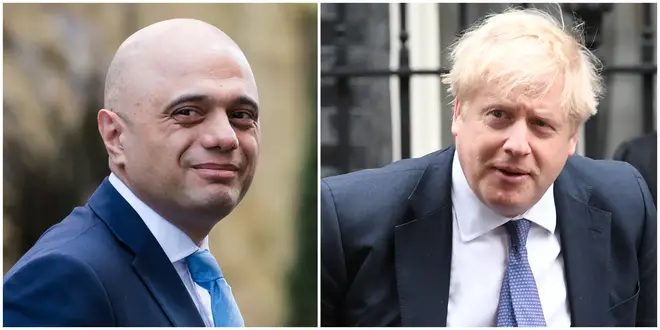
Nick Abbot 10pm - 1am
13 February 2020, 15:43 | Updated: 13 February 2020, 15:51

Sajid Javid’s resignation constitutes a reconfiguration of the power-balance between Number 10 and the Treasury.
The former Chancellor refused to accept demands that he sack his team of five special advisers, and then work with a new unit co-ordinating the message from Number 10 and Number 11 to ensure the Government was speaking with one voice.
That steadfast refusal cost Mr Javid his job, and he had to resign, leaving a vacancy for his deputy Rishi Sunak to fill.
It supposedly remains the second most powerful position in British politics.
Today’s resignation of course shocked Westminster. But the fractures between Number 10 and the Chancellor already existed, when Mr Javid gave his blessing to the HS2 rail line just before the UK left the European Union.
Number 10 had insisted no announcement was imminent. But then the Treasury briefed that the Chancellor had looked again at the numbers and decided it was best to give the £100 billion project the green signal.

And then there were the negative briefings from Number 10 that Mr Javid had earned the moniker Chino – or Chancellor In Name Only, a reference to the fact Boris Johnson’s aides preferred to deal with his deputy, then Chief Secretary to the Treasury Rishi Sunak, the son-in-law of an Indian billionaire.
Mr Sunak has been a popular choice for Number 10 on the morning broadcast rounds. He is seen as being loyal and on-message, a view not shared of Mr Javid by those close to the Prime Minister.
Tensions between Number 10 and the Treasury are of course nothing new.
There were the long-running battles between Gordon Brown and Tony Blair that ultimately cost the latter his job after ten years as PM.
Philip Hammond fell-out with Theresa May’s chief-of-staff Nick Timothy, unwilling to bend on his promise to be fiscally responsible at a time when Number 10 was demanding the Treasury loosen the purse strings.
Perhaps the most harmonious relationship in the last generation has been between David Cameron and George Osborne.
And that is what the PM’s advisers insist they are trying to replicate today with the establishment of the new team to co-ordinate the messaging between the two most powerful offices in Government.
But given Mr Javid’s decision to reject the demand so comprehensively, the reality is that it feels like a power grab from a Prime Minister who does not want his plans over the next four-and-a-bit years to be hindered by a Chancellor who will stand up to him.